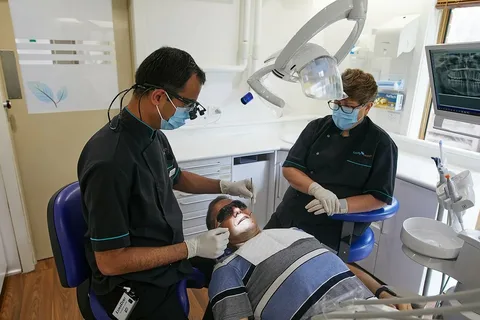Questions Answered in This Article:
- What Helps People With Borderline Personality Disorder the Most?
- When Is Inpatient Care for BPD Needed?
- What Happens in Borderline Personality Disorder Inpatient Treatment?
- Can People With BPD Live Without Medication?
If you or a loved one is living with borderline personality disorder (BPD), you may wonder: Can you be hospitalized for borderline personality disorder? The answer is yes. Inpatient care for borderline personality disorder provides a safe, structured environment for people facing intense emotional struggles, severe mood swings, or destructive behaviors. According to the National Institute of Mental Health, nearly 1.4% of U.S. adults experience BPD in any given year, with many requiring specialized treatment programs at some point in their recovery.
This article will walk you through what inpatient care looks like, when it’s needed, and how the best inpatient treatment centers for borderline personality disorder can help. You’ll also learn about evidence-based therapies, family involvement, and long-term strategies for managing symptoms. Whether you’re considering care for yourself or supporting a family member, understanding these treatment options can make the path forward clearer.
What Helps People With Borderline Personality Disorder the Most?
Research consistently shows that therapy—especially dialectical behavior therapy (DBT)—is the most effective treatment for BPD. DBT focuses on emotional regulation, teaching coping skills, and reducing destructive behaviors. Cognitive behavioral therapy (CBT) is also beneficial in helping people with BPD identify harmful thought patterns and replace them with healthier ones.
Beyond therapy, a strong treatment plan often includes family involvement, peer support, and holistic practices such as mindfulness or stress management techniques. These combined approaches help people with BPD not only stabilize during inpatient care but also build the skills needed for long-term recovery.
When Is Inpatient Care for BPD Needed?
Inpatient care is not always the first step, but it can be crucial during crisis moments. Hospitalization is often recommended when people with BPD are experiencing suicidal thoughts, self-harm urges, or other destructive behaviors that put them at risk. In these cases, a borderline personality disorder inpatient treatment program offers safety, 24/7 support, and stabilization.
Think of it like a reset button: inpatient care creates space for someone to step away from the chaos of daily life and focus entirely on healing. Family members also benefit, knowing their loved one is in a secure environment while receiving intensive support.
What Happens in Borderline Personality Disorder Inpatient Treatment?
Borderline personality disorder inpatient treatment centers provide a structured schedule built around therapies proven to help people with BPD.
Core treatments include:
- Dialectical Behavior Therapy (DBT): Considered one of the most effective treatments for BPD, DBT teaches coping skills for emotional regulation, distress tolerance, and healthier relationships.
- Cognitive Behavioral Therapy (CBT): Helps people challenge destructive thought patterns and replace them with healthier responses.
- Medication management: While not always necessary, medication can be used short-term to ease symptoms of BPD such as anxiety, depression, or mood swings.
Beyond therapy, inpatient programs may include group sessions, family therapy, and holistic approaches like mindfulness or art therapy. This balance helps in treating BPD by teaching coping skills and preparing patients for long-term recovery.
The Role of Trauma and Emotional Regulation
A common question is: Is BPD caused by trauma? While no single cause exists, research shows that many people with BPD have histories of trauma, neglect, or unstable relationships. These experiences can make emotional regulation incredibly difficult, leading to intense emotional reactions that feel overwhelming.
Inpatient care addresses these challenges by helping patients identify triggers, process past experiences, and practice healthier coping strategies. This not only reduces destructive behaviors but also strengthens long-term stability. For example, someone who previously turned to self-harm during emotional crises can learn grounding techniques and supportive communication instead.
Can People With BPD Live Without Medication?
Another common concern is: Can people with BPD live without medication? Yes, many can. While medication may help manage co-occurring symptoms of mental illness like depression or substance use disorder, BPD itself does not always require medication as the primary treatment. Instead, therapies like DBT and CBT remain at the heart of effective treatments.
For some, short-term medication support during inpatient care provides stability while coping skills are developed. Over time, with a strong treatment plan and support system, many people with BPD thrive without long-term reliance on medication.
Choosing the Best Inpatient Treatment Centers for BPD
Not all borderline personality disorder inpatient treatment centers are the same.
The best programs provide:
- A comprehensive treatment plan tailored to each individual
- Evidence-based therapies like dialectical behavior therapy (DBT) and cognitive behavior therapy (CBT)
- 24/7 clinical support for safety and crisis management
- Involvement of family members in the recovery process
- Aftercare planning to ensure long-term success
When researching treatment options, ask about staff expertise, therapy models, and how they support transition back into daily life. A strong program addresses both the mental illness and related challenges, such as substance use disorder, mood swings, or trauma-related issues.
Find Hope With Inpatient Care for Borderline Personality Disorder
Inpatient care for borderline personality disorder can be life-saving, offering safety, structure, and a clear path toward healing. By focusing on effective treatments like DBT, building coping skills, and involving family members, these programs help people with BPD regain control and stability.
If you or a loved one is struggling, don’t wait—help is available. Call Rock View Recovery today at (602) 962-1795 to learn more about our borderline personality disorder inpatient treatment centers and how our personalized treatment programs can support your journey. Healing is possible, and the first step begins with reaching out.
Read More Gorod








